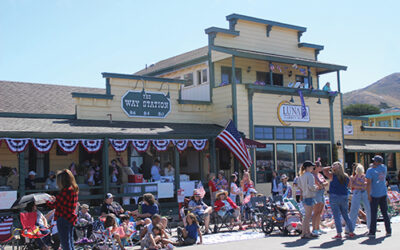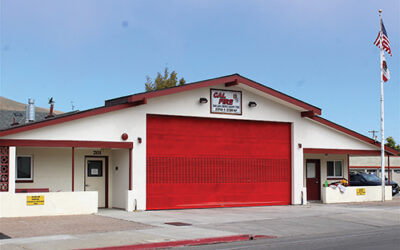With the specter of the coronavirus pandemic still looming like an ogre over literally everything, the City of Morro Bay is moving towards reinventing the way it promotes the community to the world.
The City is going forward with a plan to have the Tourism Business Improvement District or TBID form a non-profit organization and once again take over responsibility for tourism promotions, which the lodging industry has been funding for over a decade.
The TBID Advisory Board on Dec. 17 took a look at the City’s plans to back out of the promotions business, and return to the private/non-profit business model it had when the TBID was first formed in 2009.
City Manager Scott Collins has been the de facto staff person for the TBID, after the tourism director and her staff were laid off last spring following the Governor’s stay-at-home orders and the business shutdown that ensued, and continues nearly a year later.
With the State’s residents ordered to stay home, the city council decided to suspend promoting the town’s tourism industry in support of that pandemic response.
The shutdown has led to the City thinking about overturning the decision made in 2016 by a previous council to take the promotions in-house forming a new Tourism Department operating under the City Administration.
The TBID assessment is set at 3% of the cost of a room night, and is collected by motels, hotels, B&Bs, and vacation rentals within the City Limits. RV parks, which collect the City’s 10% TOT, are not part of the TBID at this time.
The rationale back in 2016 was to improve oversight over the TBID’s assessment monies, which the City considered “public money” and exert tighter control over the message and image being presented.
The TBID and the stepped-up promotions the assessments paid for, have been a big reason that the City’s transient occupancy tax receipts began a quick rise eventually to overtake sales taxes as the City’s No. 2 revenue source behind only property taxes. But the pandemic response has hit the lodging industry, indeed tourism in general, especially hard over the past 11 months with restaurants currently only allowed takeout service and unable to use dining rooms and outdoor patio dining areas that many restaurants spent lots of money creating.
When a TBID was first proposed, the goal was to increase the town’s occupancy rate to 50% and the extra promotions have done a good job in that regard.
But after seeing quick and steady growth, the occupancy rate leveled off, and yet the TBID and TOT totals continued to rise. This was attributed to increases in the cost of a room night and not to increases in the occupancy rate.
Collins said the TBID board unanimously endorsed the City’s return to the old business model, with the only discussions being about whether TBID funds should be used for “public improvements.”
“Some members thought that might be a good idea,” Collins said. “Ultimately, that was not part of the recommendation.”
The City has been trying to find more money for maintaining the infrastructure — mostly streets and sidewalks — and this past November voters handed them a new major revenue source.
Measure E-20 was a 1% sales tax hike within the City Limits that would bring in an estimated $2 million a year (in a normal, non-pandemic economy) and voters easily approved the increase.
Starting in April, the City will begin collecting 1.5% in local sales taxes (it already had a half-percent sales tax, Measure Q).
There was no specified use for the E-20 monies but the Council had indicated it would be used to maintain public safety funding (police and fire).
There is still much to accomplish with the TBID transformation, including a vote of the assessment district members on whether they want to make the change. That vote is weighted based on how much a particular motel or “property” contributes to the TBID; so a handful of large motels can steer the decision.
Collins couldn’t say if they have the needed 50%-plus one for the vote, but, “Anecdotally, I have heard there is already at least 50% support at this time,” he said.
The City hired a consultant, Civitas for $40,000 to assist with the change. The City Council will still have approval power for the new organization’s budget.
The plan is for the new entity to take over July 1 but what will the new promotions look like? “Not sure what promotions will look like then,” Collins said, “a lot will depend upon COVID.”
What’s the staffing going to look like? Collins said, “The new TBID will hire an executive director. They will not be a City employee. The Budget in the attachment indicates that employees will spend time both in Administration and Operations [i.e. marketing], so their time will be spent in both areas, and their salary will reflect that. I don’t know what that amount will be at this time.”
In 2020, literally every special event — large and small — slated for anytime after March 19 (when the economy was shut down) was canceled. Does Collins know what 2021 might be like?
“No large events are allowed by the State at this time,” he said. “When they will be allowed again is entirely dependent upon COVID.”
Whenever a group that puts on a special event has come to the City for guidance, there isn’t much to tell them. “When asked,” Collins said, “we tell them no events are allowed per State, and when they will be allowed again is anyone’s guess.”
The TBID made an immediate impact on the TOT receipts, as the City went from $1.89 million in TOT in 2010 when the TBID started its work, to $2.91 million in 2015, a 44% increase that equated to an $888,000 annual boost to the City treasury.


